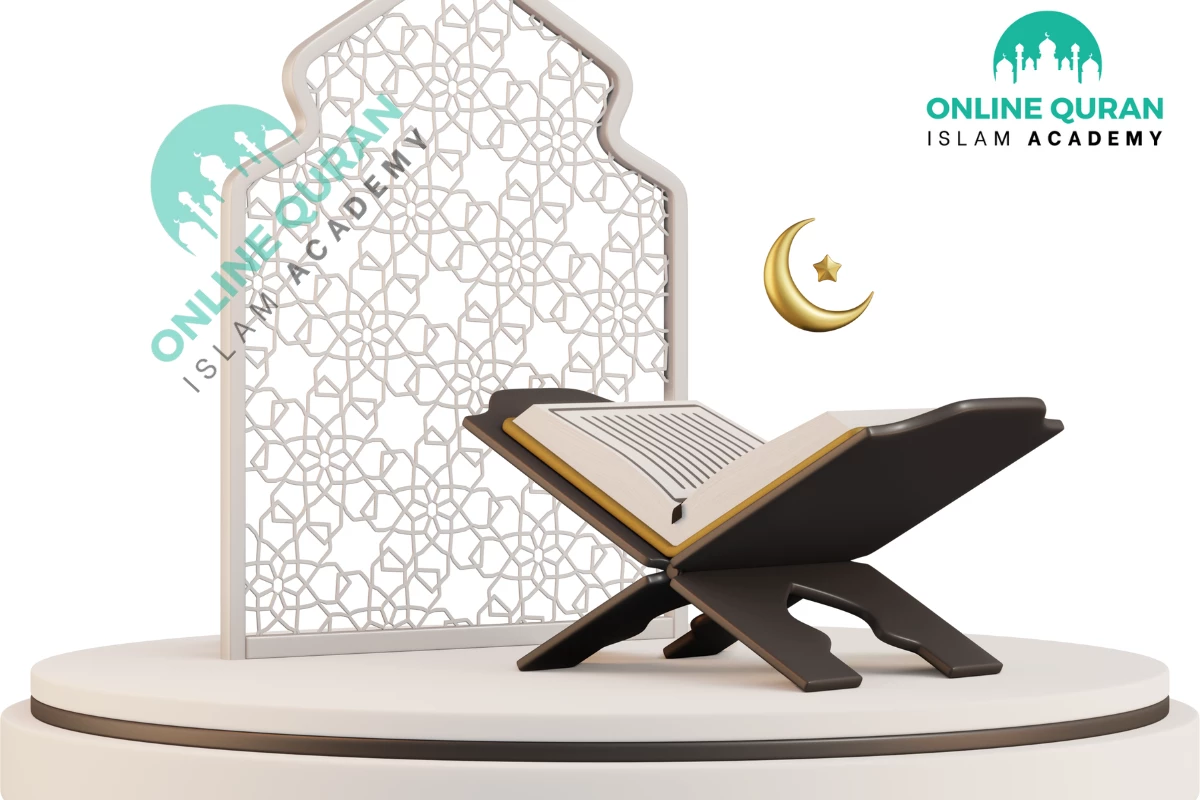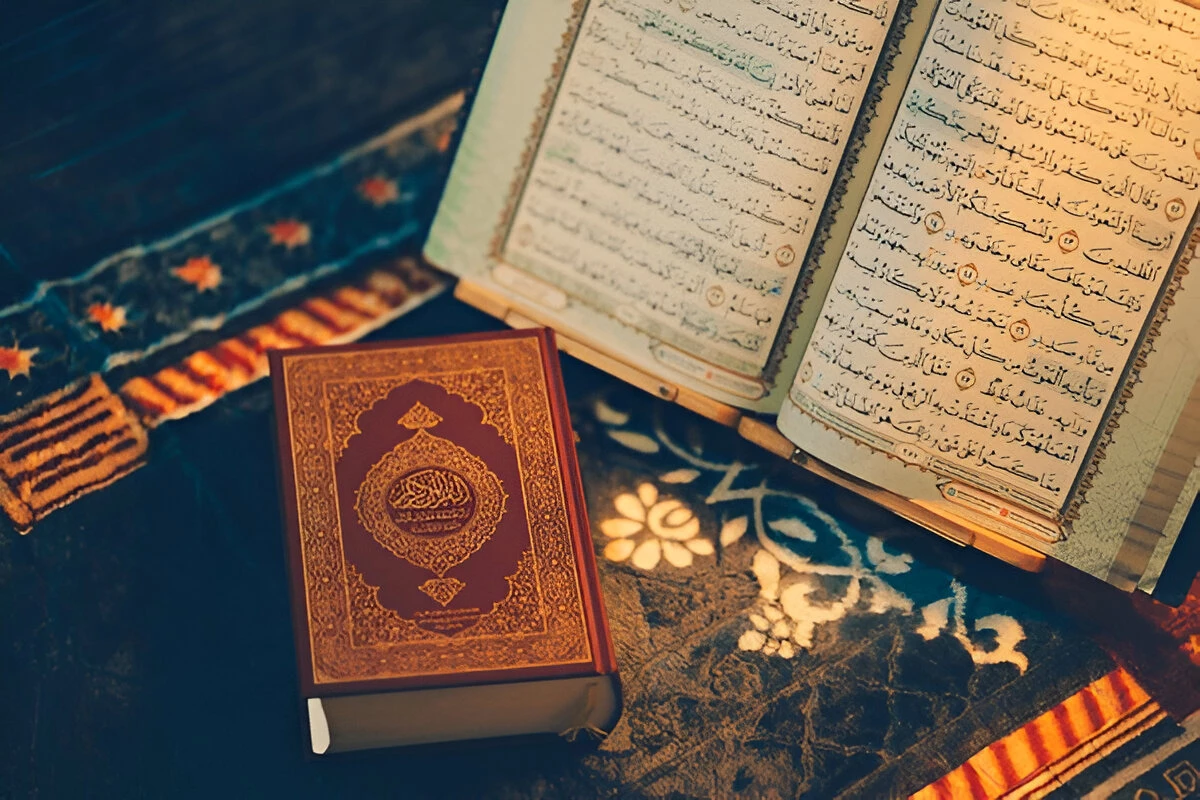Holy books of Islam, as one of the global’s predominant religions, acknowledges numerous divine books that Allah (SWT) revealed to distinct prophets all through history. These holy books of Islam form the muse of Islamic beliefs and provide steering for humanity. In this comprehensive guide, we’re going to discover those sacred texts, their significance, and their role in Islamic teachings.
The Four Major Holy Books of Islam
Islam acknowledges four main divine books that Allah (SWT) revealed to different prophets. Each book served as guidance for its time and people.
Overview of Divine Books
| Holy Book | Arabic Name | Recipient Prophet | Period |
|---|---|---|---|
| Torah | Tawrat | Prophet Musa (AS) | Before 1200 BCE |
| Psalms | Zabur | Prophet Dawud (AS) | Around 1000 BCE |
| Gospel | Injil | Prophet Isa (AS) | Around 1 CE |
| Quran | Al-Quran | Prophet Muhammad (SAW) | 610-632 CE |
The Quran: The Final Divine Revelation
Revelation and Recipient
The Holy Quran holds a unique position among the holy books of Islam for several reasons:
- Complete Preservation
- Unchanged since revelation
- Memorized by millions (Huffaz)
- Written and compiled during Prophet’s lifetime
- Standardized copy distributed worldwide
- Divine Protection
- Allah’s promise to preserve the text
- Systematic transmission through generations
- Strict rules for copying and recitation
Structure and Organization
The Quran’s organization follows a divine structure:
114 Surahs (chapters)
30 Juz (parts)
6,236 verses
Revealed over 23 years
Themes and Contents
The Quran covers various aspects of life and faith:
- Spiritual Guidance
- Monotheism (Tawheed)
- Prayer and worship
- Moral values
- Afterlife
- Practical Teachings
- Laws and regulations
- Social interactions
- Family matters
- Economic principles
The Torah (Tawrat)
Historical Context
The Torah, revealed to Prophet Musa (AS), was one of the earliest holy books of Islam mentioned in Islamic tradition.

Key Aspects
- Original Message
- Monotheism
- Divine laws
- Guidance for Bani Israel
- Prophecies
- Islamic Perspective
- Recognition of original revelation
- Acknowledgment of alterations over time
- Importance in Islamic history
For detailed academic research on the Torah in Islamic tradition, visit Oxford Islamic Studies Online.
The Psalms (Zabur)
Revelation and Recipient
The Zabur turned into discovered to Prophet Dawud (AS), recognized for his stunning voice and devotion.
Characteristics
- Content
- Prayers and praises
- Divine wisdom
- Spiritual teachings
- Prophecies
- Historical Significance
- Influence on worship
- Poetic expression
- Spiritual elevation
The Gospel (Injil)
Original Message
The Injil was revealed to Prophet Isa (AS) as guidance for his people.
Islamic Understanding
- Core Teachings
- Monotheism
- Moral guidance
- Prophecies
- Social reform
- Historical Context
- Time period
- Target audience
- Cultural setting
Common Themes Across Holy Books of Islam
Universal Messages
All divine books share fundamental teachings:
- Core Beliefs
- Oneness of Allah
- Prophetic guidance
- Day of Judgment
- Moral values
- Ethical Principles
- Justice
- Compassion
- Honesty
- Kindness
Progressive Revelation
Understanding the concept of progressive revelation:
| Aspect | Description | Significance |
|---|---|---|
| Timeline | Sequential revelation | Shows divine plan |
| Context | Suited to each era | Demonstrates relevance |
| Message | Building on previous teachings | Shows continuity |
| Culmination | Final revelation in Quran | Completes guidance |
Preservation and Authentication
Quranic Preservation
The methods of preserving the Quran include:
- Written Preservation
- Immediate recording
- Multiple copies
- Standardized text
- Continuous transmission
- Oral Preservation
- Chain of narrators
- Memorization tradition
- Regular recitation
- Teaching systems
For comprehensive information about Quranic preservation, visit Islamic Research Foundation International.
Status of Other Books
Understanding the current state of previous revelations:
- Historical Changes
- Translation effects
- Scribal variations
- Historical context
- Cultural influences
- Islamic Perspective
- Recognition of original divine source
- Awareness of human modifications
- Respect for original messages
- Focus on Quranic guidance
Studying the Holy Books of Islam

Educational Approach
Methods for studying divine scriptures:
- Academic Study
- Historical context
- Linguistic analysis
- Comparative study
- Scholarly research
- Spiritual Growth
- Regular reading
- Understanding meanings
- Personal reflection
- Practical application
Learning Resources
Tools and materials for study:
| Resource Type | Purpose | Benefits |
|---|---|---|
| Translations | Understanding meaning | Access for non-Arabic speakers |
| Commentaries | Deeper comprehension | Expert explanations |
| Study Circles | Group learning | Interactive understanding |
| Online Courses | Structured learning | Flexible access |
Impact on Islamic Practice
Daily Life Application
How holy books influence Muslim life:
- Guidance
- Personal conduct
- Family matters
- Social interactions
- Business dealings
- Worship
- Prayer methods
- Fasting guidelines
- Charitable practices
- Pilgrimage rules
Contemporary Relevance
Modern application of divine teachings:
- Current Issues
- Ethical decisions
- Modern challenges
- Social reform
- Personal development
- Universal Principles
- Human rights
- Environmental care
- Social justice
- Peace promotion
Conclusion
The holy books of Islam constitute a comprehensive system of divine steerage that has formed non secular understanding and exercise for hundreds of years. While Muslims accept as true with in all divine books, the Quran holds a special position as the very last, preserved revelation. Understanding those holy books allows us respect the wealthy historical past of Islamic teachings and their relevance to modern-day life.
The modern nature of divine revelation, culminating inside the Quran, demonstrates Allah’s knowledge in guiding humanity via one of a kind epochs. While earlier books served their specific times and peoples, the Quran stays the whole and preserved manual for all humanity till the Day of Judgment.
Through studying and understanding these holy books of Islam, Muslims can:
- Deepen their faith and knowledge
- Apply divine guidance in modern contexts
- The Remarkable Quran: Exploring the Foundations of Islam
- Appreciate the continuity of divine message
- Build bridges of understanding with other faiths
- Develop a comprehensive worldview based on divine wisdom
Whether you are a student of Islamic research, a seeker of information, or someone interested in information Islamic teachings, the observe of those holy books offers helpful insights into the religious and practical components of lifestyles.






Quran In English Translation Book
[…] to explore the Quran further? Visit onlinequranislamacademy.com to access resources, join our classes, and begin your journey of understanding and memorization […]
Top 9 Quran Learning Apps: Master Quran With Expert Teachers
[…] Take the first step in your digital Quran learning journey today. Download our app and book your free trial class to experience the difference of professional online Quran education. […]